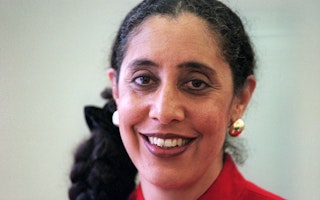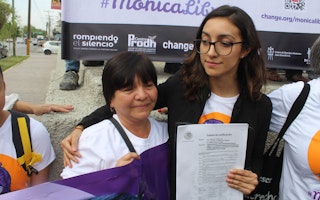Judge Patricia Wald: A Champion for Freedom
By Nkechi Taifa
Judge Patricia Wald on Wednesday received the Presidential Medal of Freedom—the nation’s highest civilian honor. I smiled when I heard she was nominated—not because she was a legal trailblazer for generations of women in the law or because she was once chief judge of the U.S. Court of Appeals for the District of Columbia Circuit. I smiled not because she was the former board chair of the Open Society Justice Initiative or because she distinguished herself as a judge on the International Criminal Tribunal for the former Yugoslavia. (Though she did all of those things and more—with grace and integrity.)
I smiled because Judge Wald championed two causes that some legal luminaries ignore.
In 2006, there was no serious legislative initiative to remedy the disparity between crack and powder cocaine in the nation’s sentencing laws. So the Justice Roundtable, a Washington-based criminal justice coalition, sought to bring attention to the issue in the international arena.
The Inter-American Commission on Human Rights accepted the Roundtable’s request to hold a thematic hearing on the crack cocaine disparity as the most egregious example of mandatory minimum sentencing in the U.S. criminal justice system. The Commission, an autonomous organ of the Organization of American States, convened the hearing on March 3, 2006, and heard riveting testimony about how mandatory minimums are applied in a discriminatory fashion and lead to increased arbitrariness in federal sentencing.
Judge Wald’s closing words were, perhaps, the most poignant part of the Human Rights Commission’s proceedings. In addition to addressing the finer points of the American Bar Association’s policy on mandatory minimum sentences and the weight of opinion within the U.S. judiciary, Judge Wald saw the bigger picture—the human toll of such policies:
Unduly long and punitive sentences are counter-productive, and, candidly, many of our mandatory minimums approach the cruel and unusual level as compared to other countries—as well as to our own past practices. On a personal note, let me say that on the Yugoslavia War Crimes Tribunal I was saddened to see that the sentences imposed on war crimes perpetrators responsible for the deaths and suffering of hundreds of innocent civilians often did not come near those imposed in my own country for dealing in a few bags of illegal drugs. These are genuine human rights concerns that I believe merit your interest and attention.
I have proudly quoted Judge Wald’s illuminating remarks in testimonies before the U.S. Sentencing Commission and Congress, and I have always felt that her words helped to create the environment that led to the passage of the Fair Sentencing Act in 2010, which significantly lessened the egregiousness of this mandatory minimum penalty.
Today, as part of a distinguished Judicial Advisory Panel, Judge Wald is championing another cause—the substantial racial disparities in arrests in Washington, D.C. A ground-breaking report issued last summer by the Washington Lawyers’ Committee for Civil Rights and Urban Affairs revealed stark conclusions: more than 8 out of 10 arrests in the nation’s capital were of African Americans, with 19 out of 20 arrests being for nonviolent offenses.
In light of the overwhelming racial disparities in arrests related to misdemeanor drug offenders—and marijuana arrestees in particular—the Judicial Advisory Panel concluded that in the District of Columbia and as a matter of national policy, drug abuse should be treated as a public health concern rather than as a primary focus of the criminal justice system.
“I see the law as a way to translate our most fundamental aspirations and goals for an open and orderly society that treats all people in the community with respect,” Judge Wald has said.
Her words are echoed by her actions.
Patricia Wald’s visionary leadership has helped spotlight the often unfair treatment of minorities in the U.S. criminal justice system—because Judge Wald understands that calling attention to injustice at home is what patriotism is all about. Her Presidential Medal of Freedom is richly deserved.
Until November 2018, Nkechi Taifa was the advocacy director for criminal justice at the Open Society Foundations.


